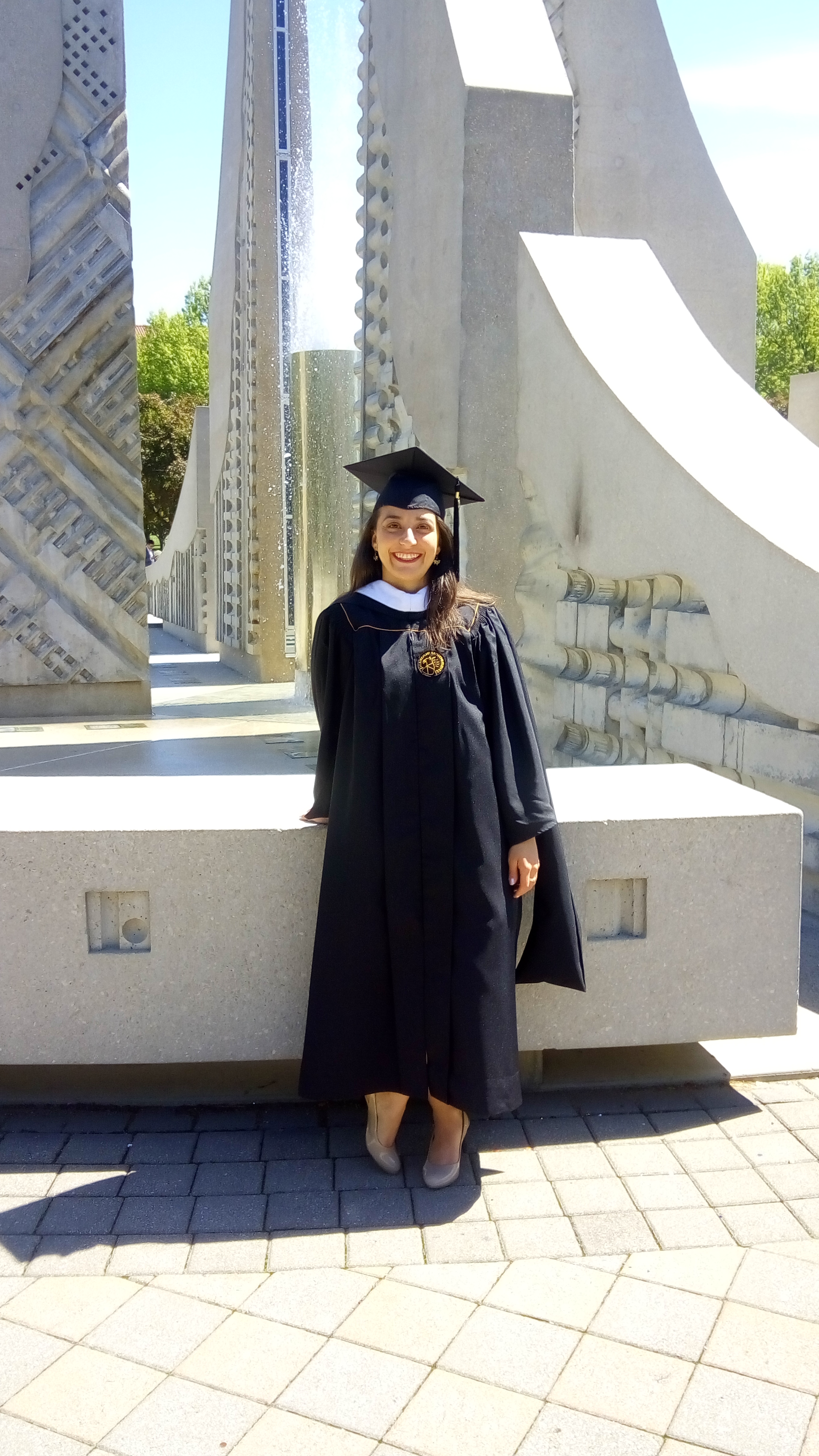M.A. in Hispanic Applied Linguistics, Purdue University
B.A. in Philology and Languages, Universidad Nacional de Colombia

M.A. in Hispanic Applied Linguistics, Purdue University
B.A. in Philology and Languages, Universidad Nacional de Colombia
What was your research topic and how did you become interested in it?
As essential as breathing, verbal communication has been a necessity since the beginning of human kind. All human languages are complex yet sufficient linguistic systems capable of transmitting all kinds of information. Formed by language-specific sounds, measures, words, grammatical structures joined together to form messages, none of the languages in the world lack meaning or importance. When learning a second or foreign language, learners face the challenge of producing accented speech that may affect the intelligibility and comprehensibility of the conveyed message.
Taking this into account, my research topic focused on the study of Spanish phonetics (study of sounds in human language). I studied methods to develop pronunciation accuracy in second language acquisition through visual feedback and auditory input, methods to instruct pronunciation using technology and gains obtained after receiving training. My interest on this topic is rooted in my own experience as a language learner and the desire to provide second language learners with tools to develop a second linguistic system that works as accurate as in their first language.
Research shows that training second language learners in producing language-specific sounds can reduce their accentedness significantly and increase the intelligibility and comprehensibility of their utterances. Research also provides evidence that addressing pronunciation and using technology in the second language classroom improves learners’ diction in a greater degree than being exposed to traditional language classes, with no emphasis in pronunciation.

My thesis project compared the use of repetitions, visual feedback and traditional instruction in the production of complex segments in Spanish formed by two adjacent consonants (i.e., /pr/, etc…) and its components (length, sonority and intrusion of elements) before and after training. I analyzed how each component was (or not) affected by the training received. The results showed that learners that received pronunciation training improved in all measurements compared to the group who received traditional instruction. The study also showed that visual feedback and repetitions had the same overall improvement in all features and were equally effective training students to acquire the targeted components.
What were the most difficult and the most gratifying aspects of your studies?
I think I have three specific moments that were very challenging for me at Purdue. First, re-learning how to read academic papers in a time-fashion manner in topics related to state-of-art methods to teach pronunciation or other subjects such as syntax or phonology. I had been teaching for couple years before going into graduate school so it was a fruitful re-learning process. The second time came while analyzing the largest amounts of data I had ever seen and heard! Even though at some point they seemed unending, I kept reminding myself that my goal was worth the effort. I did finish measuring the data, obtained two grants and presented my project, and… won a prize for that presentation. At a more personal level, the third challenging moment was when some dear people to me passed away at home and I was not able to go and be with my family and friends during those times. I think that having clear goals like finishing my thesis or working on different class projects, allowed me to stay focused, helped me to overcome grief by developing a greater sense of belonging to my family, to what I do and commitment to give my best independently of my circumstances.
I truly think that all these challenges faced at Purdue led me to develop grit and the passion to pursue my personal and professional goals by being goal-oriented,
determined and organized. By the other side, some of the most gratifying moments I lived at Purdue were when one of my teachers congratulated me for my research proposal because ‘it seemed to be written by a native speaker of English’ and when I earned two PROMISE awards that allowed me to present my thesis project in an international conference where I also earned a prize for best graduate student presentation. I also had the opportunity to engage in different student committees and work along faculty that taught me and led me to acquire new sets of skills in research and data analysis as well as to create online pedagogical materials for language students at Purdue.
Everything I experienced at Purdue led me to grow substantially as a professional and a human being and I am grateful for being granted the opportunity to advance to a higher degree!
What are your plans after graduation?
Nowadays, I am working as a Spanish teacher near Boston and I am teaching four different levels, from the beginner to advanced level. I will gather teaching experience before moving back to grad school!
Contact information:
Last modified: June 28, 2023